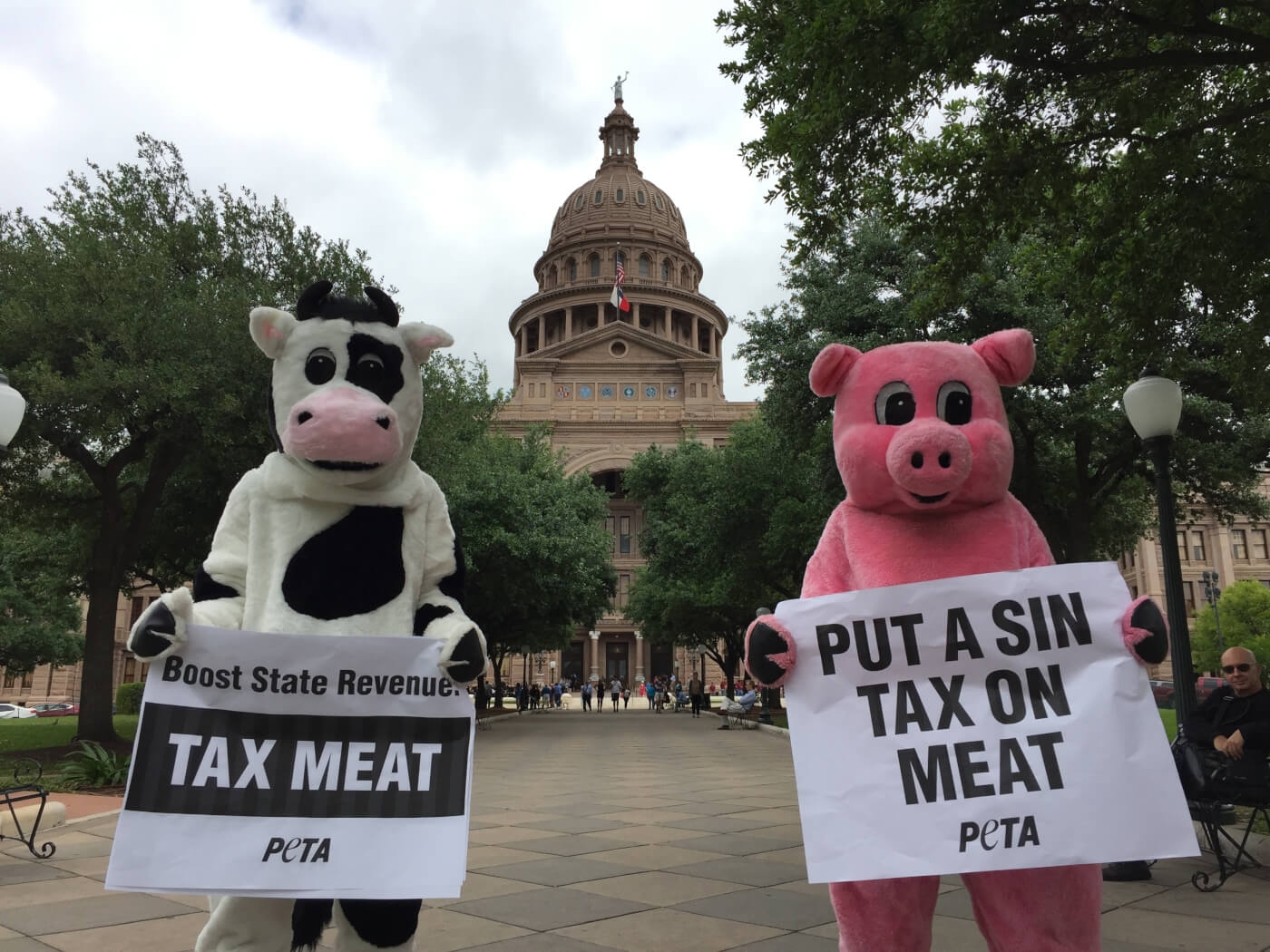Is it time for a “meat tax”? OMNR student makes a case for sustainable steak.
January 12, 2021

By Jessica Naimy
You’ve probably heard it a million times: meat is bad for the environment. But do you still eat meat? Most likely, yes.
The amount of meat consumed globally is simply not sustainable. Factory farming is contributing to climate change, and something must be done to decrease the current level of meat consumption. Increased awareness of negative environmental impacts associated with meat isn’t cutting it. Increased awareness of health risks associated with meat isn’t cutting it either. Would a tax do the trick?
Putting your money where your mouth is
Germany, Denmark, and Sweden are considering implementing a “meat tax” in an effort to negate meat’s negative environmental impacts. By increasing the value-added tax for meat from 7 to 19 percent, these countries are hoping to discourage national meat consumption. The new tax is being likened to current “sin taxes.” Sin taxes are taxes on products or activities that are considered harmful to the consumer or those around them, like cigarettes, alcohol, gambling, and sugary drinks.

Sin taxes have proven to decrease consumption. A study conducted by the American Journal of Public Health saw a 25 percent decrease in alcohol-related car crashes in Illinois after raising taxes on beer and spirits in 2009. They concluded that increasing alcohol excise taxes, or sin taxes, could help save lives. Another study found that increasing the cost of a pack of cigarettes by 10 percent would reduce demand by 4 percent and thus decrease the number of smokers and overall consumption of tobacco. A soda and junk food tax passed in Mexico has been touted for decreasing nationwide consumption of sugary drinks and unhealthy foods.
Bucking the global consumption trends
Many environmentally-minded Europeans and Americans have decreased their meat consumption by participating in “Meatless Mondays” and embracing vegan alternatives such as Beyond Burgers, but statistics show overall meat consumption in wealthy countries has not declined.
Meat has become an integral part of the Western diet. The average American eats over 200 pounds of meat per year, which breaks down to 10 ounces of meat per day—double the amount recommended by nutritionists. Global meat production is almost five times higher today than it was in the 1960s. Meat consumption is expected to continue to rise as the population continues to grow and global average incomes increase.
But meat production is horrible for the environment. The pastoral family farm has been replaced with industrial factory farming and the negative environmental impacts are growing harder to ignore. Livestock farming contributes more greenhouse gas emissions than the entire transportation sector worldwide. Meat production requires large amounts of food and water. It is land-intensive and continues to be a main driver of deforestation. Research conducted by The University of Oxford found “that eliminating animal protein from the global food system would save $1.6 trillion in environmental costs by 2050.”
Some argue that a meat tax would disproportionately affect lower-income communities, many of whom live in “food deserts” and rely on inexpensive meat as a primary source of calories. A meat-tax strategy published in Nature Climate Change addresses these fears. It suggests designating a portion of federal tax revenues for health advocacy and keeping healthy foods untaxed. These policies would protect the food security of both lower- and middle-income communities.

Finding sustainable solutions
In order for a meat tax to be effective, it has to be a global solution. Completely eliminating animal protein is unreasonable, and likely impossible, but a meat tax would be a significant reason for consumers to begin shifting diets to include more plant-based proteins.
If you do want to eat meat, choose poultry or pork over beef, which is extremely resource-intensive. Most importantly, just eat less meat! Substitute animal protein a couple of times a week with beans, legumes, protein-rich vegetables, or nuts. A meat tax won’t make us meat-free, but it will make us meat-conscious, and this is an important step for creating any sort of lasting change for a healthier environment.
For more perspectives on sustainable meat consumption, see a recent video in the Center Director Dr. Michael Mortimer’s Director’s Desk Series on our YouTube channel.

Jessica Naimy began her studies in Virginia Tech’s Online Master of Natural Resources program in the fall of 2020. She is planning to graduate in December 2021. This article is an op-ed from her Food Policy and Sustainability course. Prior to enrolling in the OMNR, Jessica was an actress living in New York City performing on Broadway, off-Broadway, and at regional theatres. After the pandemic closed her show and the entire theatre industry, she decided to pursue another passion: sustainability. Jessica hopes to use her unusual background as a conduit to help people understand the immediacy of the climate crisis.


